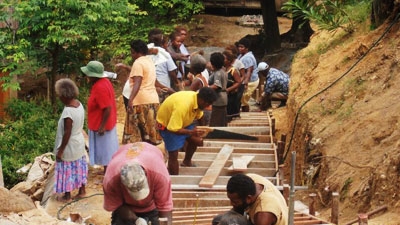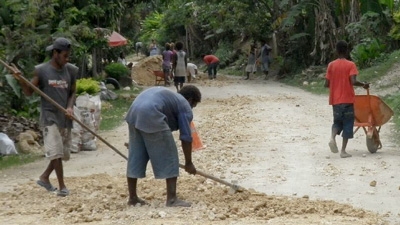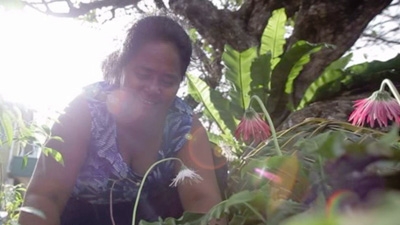Challenge
The Solomon Islands is a fragile, post-conflict country. The small nation went through a period of conflict from 1998-2003, known as ‘the tensions,’ which led to deployment of a regional peacekeeping and assistance mission in 2003. Long standing unresolved disputes remained however, and violent riots occurred again in 2006. The government was already grappling with a confluence of continued fragility, high population growth in Honiara (with an estimated 33 percent of the population living below the poverty line), and high unemployment when the 2009 global economic crisis hit its shores. Against this backdrop, the government sought support from the international community to help address the effects of the crisis, including social unrest associated with the economic downturn. Urban under-employment, especially among youth, remains a large problem in the capital of Honiara.
Solution
The project aims to assist the most vulnerable of Honiara’s population, particularly youth and women, by increasing their income through short-term, labor-intensive employment activities.
The project was processed as a Rapid Response to Crises and Emergencies Operation, and financed by the International Development Association (IDA), the State and Peace-Building Fund (SPF), and the Pacific Region Infrastructure Facility (PRIF). This mix of funding allowed the World Bank team to mobilize funds rapidly and to focus on executing a small portion of the overall initiative. This approach ensured that the project reached beneficiaries quickly, as many start-up activities were undertaken in parallel with IDA grant processing. Work activities are primarily focused on rubbish collection, stream and coastal cleanup, road upgrading and maintenance.
Results
From June 2010 to end September 2012, the project has:
- Created over 287,000 person-days of work (about 60 percent of its targeted 500,000 person days of work)
- Paid out approximately US$1,153,735 to urban poor in Honiara
Provided over 4,500 people with workplace training and employment, working an average of 60 days each - Included the participation of about 57 percent women
- Included the participation of about 51 percent youth
- Involved more than 570 youth, women and community groups throughout the city
- Completed 870 meters of community concrete footpaths at 15 sites.
Most of the job creation has been in rubbish collection and the clearing of streams and beaches, road rehabilitation and maintenance, and other urban renewal work. A program of basic pre-employment training is providing skills, attitudes and practices valued by employers in the formal economy and job market.



